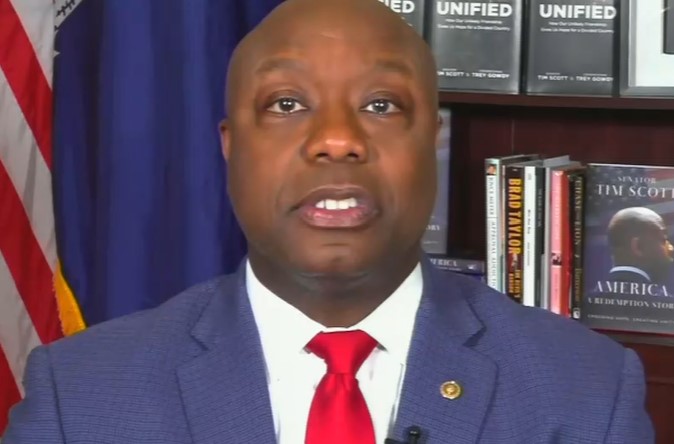
Unique insights, now out there for Inman Intel subscribers solely. Dive deep into the ever-evolving landscapes of residential actual property and proptech with Inman Intel, your premier supply for market intelligence and data-driven insights. Subscribe at the moment to realize full entry.
Current shifts in the actual property trade have prompted dwelling sellers to rethink conventional gross sales approaches, notably how purchaser’s agent commissions issue into the transaction. An Intel evaluation reveals a notable dissonance between sellers’ expectations and the realities enforced by their itemizing brokers, rooted in complete brokerage insurance policies and brokers’ subject methods.
Brokerages are proactively shaping insurance policies to accommodate the evolving calls for of sellers, with brokers implementing these measures because the market panorama undergoes important transformation.
The core of the resistance amongst trade professionals is a consensus that omitting purchaser’s agent commissions can detrimentally influence gross sales. “Within the quick time period, it is conceivable that such methods would possibly undermine a property’s marketability. Nonetheless, because the market adapts, I am assured these issues will dissipate,” expresses a brokerage principal from Madeira Seashore, Florida. “Properties at cheaper price factors would possibly wrestle extra acutely in absence of purchaser charges, but strategic negotiation can navigate these obstacles.”
In April, Intel launched into a challenge to chart how brokers are navigating this pivotal second. Querying 620 actual property professionals on their interactions with each vendor and purchaser shoppers, the initiative aimed to delineate the insurance policies brokerages have instated, gauge the present challenges, and forecast preliminary levels of the market’s adjustment.
The survey illuminated a broad-based trade resistance to vendor calls for to bypass purchaser’s agent commissions, manifesting in various, nuanced approaches—some steered by brokerage management, others by brokers’ cumulative subject experiences.
Discover the whole report under for an in-depth comparability of your brokerage’s efficiency relative to the trade’s prevailing insurance policies and pointers.
The stakes preserve rising
The panorama is unmistakable: the subject of purchaser’s agent commissions is more and more unavoidable for brokers and their vendor shoppers alike.
- 23% of brokers reported that a couple of in ten latest sellers queried concerning the necessity of masking purchaser’s agent commissions, with almost half of this section encountering the query from over half their vendor shoppers.
- One other 32% witness related inquiries, albeit from a smaller fraction of their shopper base, underneath 10%.
- But, for 45%, such questions haven’t but arisen.
Brokers anticipate potential deal breakdowns when vendor shoppers select to bypass fee funds, decreasing the pool of patrons, losing important agent efforts on each transaction sides, and straining agent-client relations.
That is particularly regarding regarding first-time homebuyers:
- 38% of brokers encounter first-time patrons more likely to withdraw if confronted with direct fee funds, in comparison with 29% for repeat shoppers.
- Solely 22% imagine first-timers may be prepared to deal with all fee prices instantly, versus 32% for veteran patrons.
- A method of accelerating the provide in lieu of the vendor masking fee finds extra acceptance amongst repeat patrons (47%) than first-time purchasers (43%).
The consensus? Brokers concern that eschewing purchaser’s agent commissions would possibly jeopardize potential transactions, particularly impacting first-time patrons, although important presents from repeat patrons may be in danger.
Nonetheless, a vendor prepared to barter or revisit the fee technique would possibly discover extra favorable phrases, although preliminary reluctance to cowl purchaser’s fee is anticipated.
Tips and Instinct
About 63% of brokers disclosed that their brokerages advocate a specific stance when going through vendor reluctance to pay purchaser’s commissions.
Intel’s subsequent enquiries revealed a correlation with brokerage leaders’ recommendation, providing essentially the most complete viewpoint on how brokers are recommended to navigate these discussions.
If a promoting shopper is adamant about not masking a purchaser’s agent fee, how does your brokerage advocate you reply?
- 48% recommend utilizing this stance as a negotiation place to begin, urging eventual fee cost flexibility.
- 17% advocate contemplating a listing value adjustment if the vendor is agency on not paying the client’s fee.
- 11% advocate for convincing the vendor to totally accommodate the client’s agent fee.
- 4% concur with out making an attempt persuasion.
- 21% provide different assorted methods.
The takeaway: Brokerages and brokers are inspired to undertake a diplomatic stance towards the client’s fee problem, favoring negotiation over outright rejection of vendor proposals.
One St. Louis agent clarifies, “No single technique prevails, however sellers refusing to supply purchaser’s agent compensation undoubtedly slender their purchaser pool, compromising their aggressive edge. Serving to sellers perceive the ramifications and exploring alternate options is paramount.”
For brokers in brokerages with out specific insurance policies, most popular methods mirror these supported by steerage, with nuanced deviations.
- 15% of such brokers would extra aggressively advocate for full purchaser’s fee protection—a response considerably stronger than that guided by brokerage recommendation.
This underscores a common alignment between brokers’ instincts and brokerage insurance policies, albeit with stronger resistance the place brokerage pointers are absent.
However, some brokerage leaders hesitate to formalize insurance policies, citing authorized issues and the fluctuating coverage panorama. “We emphasize training over fastened insurance policies to stay agile and legally prudent,” a North Carolina brokerage govt feedback.
Methodological Word: The Inman Intel Index survey, working from April 19 to Might 1, 2024, garnered 620 responses, inviting broad participation throughout the actual property trade. This month-to-month ballot displays the insights and opinions of the Inman group, providing a pulse on trade dynamics and sentiment.
E-mail Daniel Houston
















